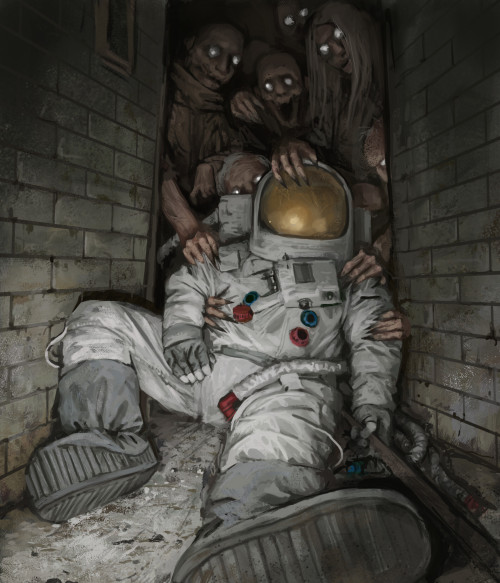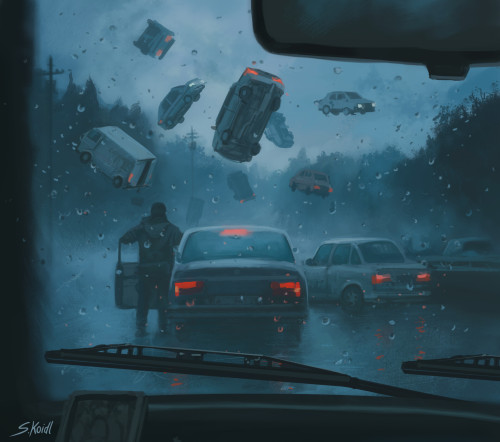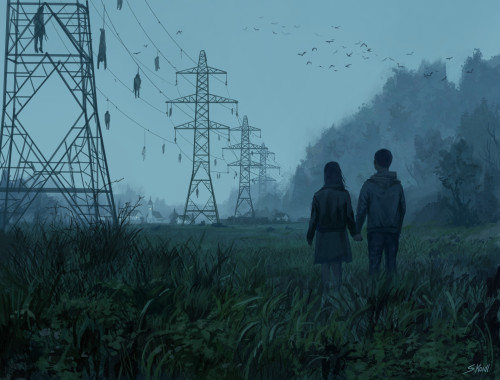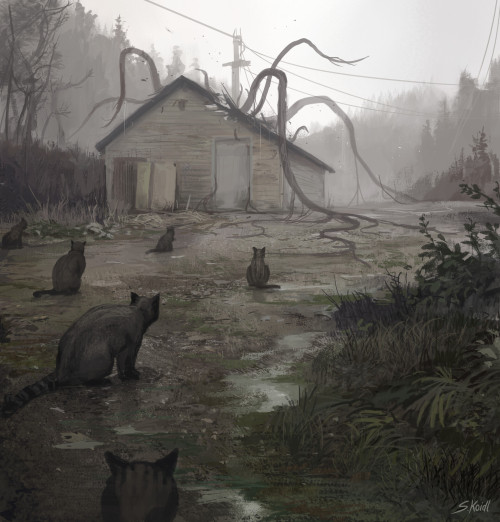I Find It Funny How People (antis Usually) Think That Discourse Regarding Fiction And Reality Is A Recent
I find it funny how people (antis usually) think that discourse regarding fiction and reality is a recent internet phenomenon. The terms "proshipper" and "antishipper" are relatively new, but the basis of it all has been going on for way longer than that.
In the novel "Madame Bovary" (1856) by Flaubert, the anxiety that readers, specifically women, would be brainwashed by fiction is channeled by Bovary herself, who "made her hands dirty with books from old lending libraries". With the "books" in question being romance novels, Flaubert not so subtly implies that works of fiction are the reason why Bovary ends up idealising her idea of love to the point that she commits acts of adultery in attempt to escape a reality that had become monotonous as a result of her novel reading.
Even in "Northanger Abbey" (1817) by Jane Austen, the protagonist, Catherine Morland, has a warped sense of reality, and it is said that it's because of her love for Gothic novels. Different from Flaubert though, who seemed to discourage women from reading romance novels altogether, a major plot point of Austen's novel is how Catherine needs to learn how to separate fiction from reality, meaning that a good relationship with novels can be achieved if only they aren't seen as a blueprint for living life. She also mocks her fellow authors who belittle their own readers while still publishing the books they strive to censor, and blames the reader's ability to differentiate fiction from reality, rather than the novel genre itself.
While terminology might have changed, the topic has remained about the same at the bare essentials, which are perfectly reflected in what both antishippers and proshippers argue about on the regular. The former believing that fiction affects reality on a 1:1 basis and that problematic elements must be identified as such so not to brainwash the reader into romanticising them, while the latter sees a distinction between fantasy and action, thinking that it's not the piece of fiction that perpetuates misconduct, but that the responsibility lies within the reader and their discretion.
The fact that this discourse now happens online rather than in the novels you study in class, does not take away any validity from it. Fandom spaces and ships are treated no differently than how novels were in the 19th century, with antis doing anything they can to censor whatever they deem to be problematic, as they fear that readers may glorify the (fictional) abuse irl, similarly to how Victorians censored works in order to "shelter" women.
At the end of the day, it's not only about being an antishipper or a proshipper, it's whether you consider yourself to be pro censorship or pro artistic freedom, and there's simply no other way to put it.
More Posts from Wet--moss and Others

bakugou katsuki and midoriya izuku from my hero academia love bkdk!

@svyatoivo ( @insomniac-incubus ) and me
(I'm the red one with a beercan)
🔪 Chaotic husbands 🗡




by Stefan Koidl



International Transgender Day of Visibility

Merry Christmas from our Wonder Duo!
They're using the outfits from the manga, it's cute.








let me hold this baby bird!!





Why did I not hear about the two canonically trans characters in BNHA until now!? I’ve heard so much about trans Kirishima (who isn’t canonically trans) but the fandom doesn’t even seem to want to spread the news of Magne being a trans woman and Tiger being a trans man.
So, please reblog this to spread the news!
Sidenote: I have no problem with trans headcanons, but when they get more attention than the actual trans characters, it kind of grinds my gears since characters in BNHA are usually 3-dimensional regardless of whether or not they’re a villain or side character. This means these trans characters have so much potential that people are ignoring!



NO DYING ON MY WATCH.
I feel it now
My brother was diagnosed with depression years before I was, and because of that he started therapy years before I did.
I still remember when I was a young teen and he was playing a Nirvana song and he stopped it at this one line: “I miss the comfort of being sad”
He told me that when you start to get better, there’s a part of you that misses being sad and that if you start feeling that way you have to be extra extra aware and careful because if you indulge the feeling you’ll go down a self-destructive spiral
And even though that was years and years ago, I think about it all the time. Especially when I’m reading discourse on the idea of getting so attached to mental illness as an identity that you don’t want to improve things because you feel safe in it and don’t know who you are without it
I always think of that line “I miss the comfort of being sad” and my brother’s warning
-
 oc3anic-ang3l liked this · 6 months ago
oc3anic-ang3l liked this · 6 months ago -
 mangos-and-cream liked this · 10 months ago
mangos-and-cream liked this · 10 months ago -
 chaoticgirl23 liked this · 1 year ago
chaoticgirl23 liked this · 1 year ago -
 justcallmealt liked this · 1 year ago
justcallmealt liked this · 1 year ago -
 captainspaceprincess liked this · 1 year ago
captainspaceprincess liked this · 1 year ago -
 asterosian liked this · 1 year ago
asterosian liked this · 1 year ago -
 pretty-nun-machine liked this · 1 year ago
pretty-nun-machine liked this · 1 year ago -
 wings-of-indigo liked this · 1 year ago
wings-of-indigo liked this · 1 year ago -
 usergrantaire reblogged this · 1 year ago
usergrantaire reblogged this · 1 year ago -
 usergrantaire liked this · 1 year ago
usergrantaire liked this · 1 year ago -
 elhopper1sm liked this · 1 year ago
elhopper1sm liked this · 1 year ago -
 arcsin27 liked this · 1 year ago
arcsin27 liked this · 1 year ago -
 polimoliposts reblogged this · 1 year ago
polimoliposts reblogged this · 1 year ago -
 stargesor liked this · 1 year ago
stargesor liked this · 1 year ago -
 yuuana reblogged this · 1 year ago
yuuana reblogged this · 1 year ago -
 proshipteddy reblogged this · 1 year ago
proshipteddy reblogged this · 1 year ago -
 proshipteddy liked this · 1 year ago
proshipteddy liked this · 1 year ago -
 sciencematter liked this · 1 year ago
sciencematter liked this · 1 year ago -
 emperorwhoemperorstheworld reblogged this · 1 year ago
emperorwhoemperorstheworld reblogged this · 1 year ago -
 s0urtarts liked this · 1 year ago
s0urtarts liked this · 1 year ago -
 droolingbug liked this · 1 year ago
droolingbug liked this · 1 year ago -
 lilyflower6199 liked this · 1 year ago
lilyflower6199 liked this · 1 year ago -
 heinousbloom liked this · 1 year ago
heinousbloom liked this · 1 year ago -
 akisayas liked this · 1 year ago
akisayas liked this · 1 year ago -
 jigsaw-selfshipping reblogged this · 1 year ago
jigsaw-selfshipping reblogged this · 1 year ago -
 sorrymyrabbisaidno liked this · 1 year ago
sorrymyrabbisaidno liked this · 1 year ago -
 eriandthestar liked this · 1 year ago
eriandthestar liked this · 1 year ago -
 sumflowerd liked this · 1 year ago
sumflowerd liked this · 1 year ago -
 cursed--alien reblogged this · 1 year ago
cursed--alien reblogged this · 1 year ago -
 justalittlerayofpitchblack liked this · 1 year ago
justalittlerayofpitchblack liked this · 1 year ago -
 justlovearts reblogged this · 1 year ago
justlovearts reblogged this · 1 year ago -
 justlovearts liked this · 1 year ago
justlovearts liked this · 1 year ago -
 lola9 liked this · 1 year ago
lola9 liked this · 1 year ago -
 hit-the-pavemxnt liked this · 1 year ago
hit-the-pavemxnt liked this · 1 year ago -
 purrpypaws liked this · 1 year ago
purrpypaws liked this · 1 year ago -
 groundlaurel liked this · 1 year ago
groundlaurel liked this · 1 year ago -
 sammy863 liked this · 1 year ago
sammy863 liked this · 1 year ago -
 make-it-80s liked this · 1 year ago
make-it-80s liked this · 1 year ago -
 writers-get-biters liked this · 1 year ago
writers-get-biters liked this · 1 year ago -
 ihatesumcharacters liked this · 1 year ago
ihatesumcharacters liked this · 1 year ago